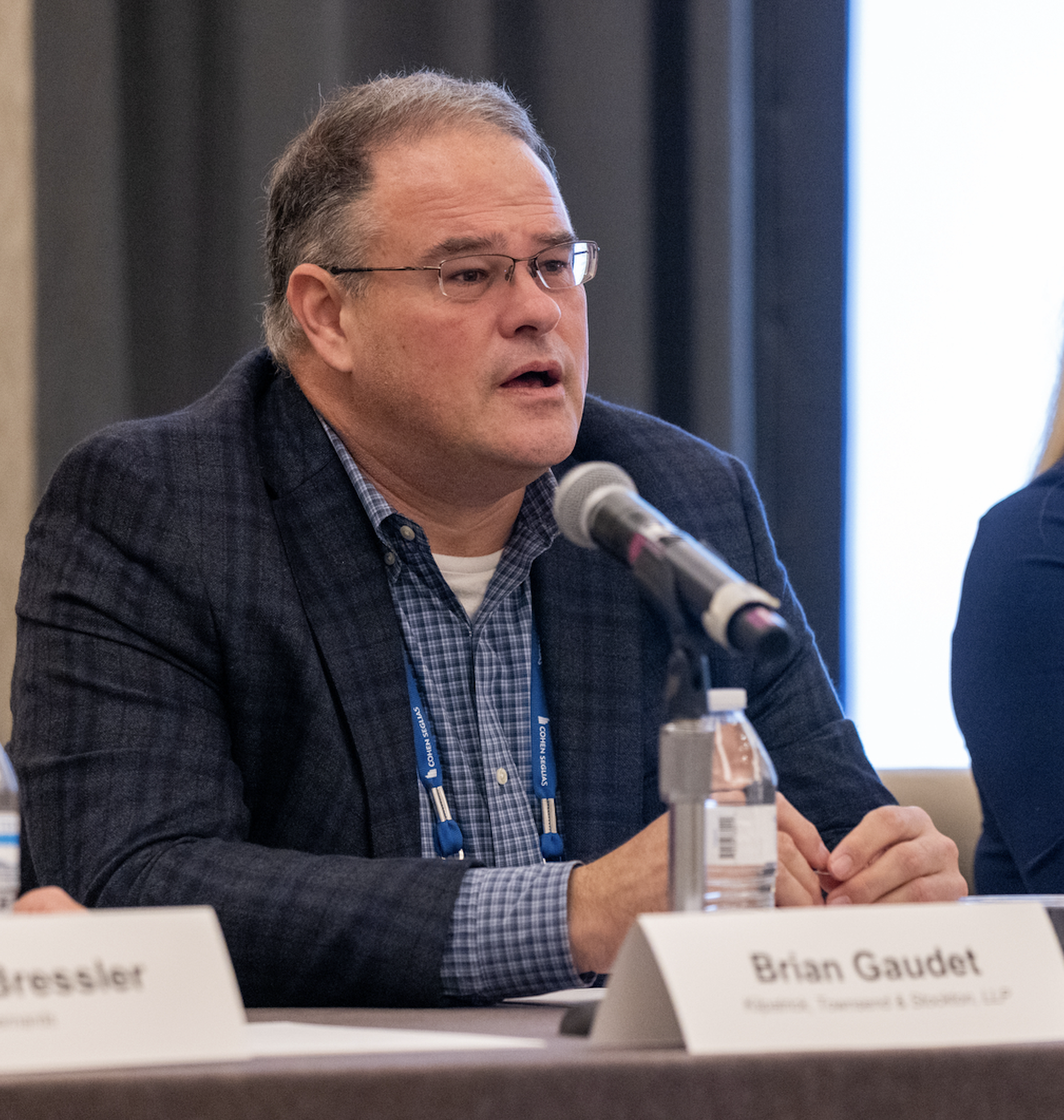WASHINGTON, D.C. – A late July press release issued by the Biden-Harris administration expressed concern about the “effects of extreme heat” and outlined plans for action. Specifically, Biden asked the Department of Labor (DOL) to issue the first-ever Hazard Alert for heat. The DOL will also “ramp up enforcement of heat-safety violations” in the work place, including construction sites.
Third Thursday asked regular contributors to offer thoughts and reactions. Are Biden’s goals worthwhile, futile, or unnecessary? Opinions varied considerably. Check out the responses below.
“I’m a firm believer that for a construction project to be successful, there must be a strong focus on safety. To the extent that OSHA regulations do not already have measurable standards to protect workers from environmental heat exposures, I would support efforts to minimize further injuries provided employers are trained in what they can and should be doing to help. It is my hope that the implementation of new protections can be done without politicizing the effort. As I mentioned, it is critical that contractors ensure everyone goes home safely at the end of every day. Doing so is not a political statement and shouldn’t be. That said, I believe this Administration’s directive to have the Department of Labor ‘ramp up enforcement of heat-safety violations …’ is a good thing. For these reasons, I also believe attorneys should recommend that their clients focus on project and worker safety which will certainly minimize claims if done correctly. Any impact on contract language is dependent upon what OSHA does in terms of implementing new requirements.” — Todd Bressler, partner at Beltzer Bangert & Gunnell, Los Angeles
 “Employers are aware of the issue. The directive will have little actual effect as employers have already largely incorporated what we have learned about heat acclimatization over the recent past (mostly from sports, primarily football) into their protocols. Addressing heat conditions in employment is of course a good idea, but the notion that employers haven’t already taken steps is simply wrong. Contrary to some beliefs, no competent employer will intentionally subject their employees to harm and themselves to liability given what has already been long known about exposure to heat in working environments. Design professionals are already fairly well insulated from construction worker liability. Additional contract language is unnecessary and possibly even counterproductive.” — Frederick F. Butters, PLLC, attorney at law, Southfield, Mich.
“Employers are aware of the issue. The directive will have little actual effect as employers have already largely incorporated what we have learned about heat acclimatization over the recent past (mostly from sports, primarily football) into their protocols. Addressing heat conditions in employment is of course a good idea, but the notion that employers haven’t already taken steps is simply wrong. Contrary to some beliefs, no competent employer will intentionally subject their employees to harm and themselves to liability given what has already been long known about exposure to heat in working environments. Design professionals are already fairly well insulated from construction worker liability. Additional contract language is unnecessary and possibly even counterproductive.” — Frederick F. Butters, PLLC, attorney at law, Southfield, Mich.
 “As someone who lives and practices in Houston, Texas, I am very familiar with the heat and its health effects. I think the federal government drawing attention to this important issue is a good thing, especially during the hottest part of the year. However, I am not certain that the administration’s directive to ramp up punishment is as helpful as focusing their attention and resources on an information and outreach campaign towards preventing heat related illnesses.
“As someone who lives and practices in Houston, Texas, I am very familiar with the heat and its health effects. I think the federal government drawing attention to this important issue is a good thing, especially during the hottest part of the year. However, I am not certain that the administration’s directive to ramp up punishment is as helpful as focusing their attention and resources on an information and outreach campaign towards preventing heat related illnesses.
“With regard to contract clauses in the future: Typically in contracts there are provisions related to inclement weather as well as natural disaster type events (floods, tornado, earthquake, hurricane, etc.). I have seen very few specific references to the effects of very hot days. I think that the distinguishing factor is that hot days are much more predictable than these other types of events. If they are foreseeable, then one would expect those potential impacts to be forecasted and included in the schedule so that a specific provision addressing them would not be necessary. If a national standard is introduced, we may see changes in contracts necessary to conform to the standard.”
— Brian R. Gaudet, partner at Kilpatrick, Townsend & Stockton, LLP
 “This is just another in the long list of Biden’s nonsensical policies. Workers have been exposed to high heat, frigid temperatures, downpours, blizzards, and extreme storms for centuries. These extremes are often a badge of honor and give bravado to our industry, and show that we’re tough and durable, just like the steel and concrete that we use to do our jobs. This president is clueless if he believes that Washington D.C. can somehow shield workers from this essential aspect of our business. It may fly in the elite parts of town and make some feel virtuous, but most of the workers I know embrace the challenge of construction and everything that comes with it, including the weather.”
“This is just another in the long list of Biden’s nonsensical policies. Workers have been exposed to high heat, frigid temperatures, downpours, blizzards, and extreme storms for centuries. These extremes are often a badge of honor and give bravado to our industry, and show that we’re tough and durable, just like the steel and concrete that we use to do our jobs. This president is clueless if he believes that Washington D.C. can somehow shield workers from this essential aspect of our business. It may fly in the elite parts of town and make some feel virtuous, but most of the workers I know embrace the challenge of construction and everything that comes with it, including the weather.”
— Wayne Kalayjian, managing director, Secretariat, El Segundo, California
 “Like it or not, climate change is here. All you need to do is see what is happening in Phoenix this summer. I understand that we had the hottest July in recorded history, which followed the hottest June. With this new reality comes an equal need to study and protect our workers who are out there physically working. OSHA has always mainly focused on limited areas such as trench protection, fall protection, and confined space entry. There needs to be a focus placed on heat-safety; Both in enforcing the rules that we have, and also determining what new rules are needed.”
“Like it or not, climate change is here. All you need to do is see what is happening in Phoenix this summer. I understand that we had the hottest July in recorded history, which followed the hottest June. With this new reality comes an equal need to study and protect our workers who are out there physically working. OSHA has always mainly focused on limited areas such as trench protection, fall protection, and confined space entry. There needs to be a focus placed on heat-safety; Both in enforcing the rules that we have, and also determining what new rules are needed.”
— Michael McKenna, Cohen Seglias Pallas Greenhall & Furman PC, Philadelphia
 “The health and safety issues in the workplace resulting from unprecedented extreme heat, such as that we are suffering in many parts of the country, deserve the attention of employers and the government. Neither the workers nor contractors are the cause of this heat wave. However, while the Administration’s announcement that the DOL will ramp up enforcement of heat regulations reflects an admirable inclination of the government to protect workers who must endure the heat, the government should not miss the opportunity to also stand up for contractors who share the concern for workers, but must sustain the costs of the remedial measures.
“The health and safety issues in the workplace resulting from unprecedented extreme heat, such as that we are suffering in many parts of the country, deserve the attention of employers and the government. Neither the workers nor contractors are the cause of this heat wave. However, while the Administration’s announcement that the DOL will ramp up enforcement of heat regulations reflects an admirable inclination of the government to protect workers who must endure the heat, the government should not miss the opportunity to also stand up for contractors who share the concern for workers, but must sustain the costs of the remedial measures.
“The government should join with the contracting community and provide them with access to economic relief to best assure that workers get the relief they deserve. My concern is that the government will move from a focus on the appropriate protection of workers to a heavy-handed enforcement with unfair punitive results on a contracting community that is always focused on worker safety, including as it relates to extreme heat.” — Robert S. Peckar, founding partner, Peckar & Abramson, P.C., New York, N.Y.
 “The Biden Administration is showing practical concern for worker health and safety that has been absent for many years. The Administration is putting human lives first, in specific ways, such as ensuring drinking water is available to workers on construction sites and mandating hydration breaks for all workers exposed to extreme heat. Overall, this is better for the industry than having workers become sick. Additionally, there is a growing recognition inside and outside of government that climate change is real, and we must deal with the impacts, including trying to slow the process. The desertification of lower North America has begun, and the extreme heat and weather is just the first sign. We must find ways to slow this process and protect our farm land, forests, rivers, streams, and lakes.
“The Biden Administration is showing practical concern for worker health and safety that has been absent for many years. The Administration is putting human lives first, in specific ways, such as ensuring drinking water is available to workers on construction sites and mandating hydration breaks for all workers exposed to extreme heat. Overall, this is better for the industry than having workers become sick. Additionally, there is a growing recognition inside and outside of government that climate change is real, and we must deal with the impacts, including trying to slow the process. The desertification of lower North America has begun, and the extreme heat and weather is just the first sign. We must find ways to slow this process and protect our farm land, forests, rivers, streams, and lakes.
“Construction companies with projects in areas experiencing higher than normal temperatures should be ensuring that clean drinking water is available to workers. Other amenities such as cool towels, that lower the workers’ body temperatures, and shaded break areas—should also be available. Otherwise, companies may find themselves with worker comp claims for heat-related conditions or worse, someone might die from the heat. Approximately 400 workers have died from environmental heat exposure since 2011. Now that this is in the news, everyone must be alert to the situation and respond appropriately. From a contracting perspective, this may impact general conditions and schedules, if OSHA issues standards that require jobs to stop for extreme heat.
— Carol A. Sigmond, partner at Greenspoon Marder LLP, New York, N.Y.
“The government’s recent emphasis on heat-related illnesses is a positive for the construction industry, as it will help construction companies protect their workers from suffering the severe consequences of heat exposure, including hospitalizations and deaths. However, with OSHA directing its focus to the implementation and enforcement of heat-related policies, it is essential that contractors revise their safety policies to ensure that they comply with all applicable state and federal heat-related safety requirements. Further, contractors should provide training to their supervisors and employees on their heat-related safety policies and educate employees about the signs of heat exposure to avoid citations from OSHA or worse.” — Joseph Sine, attorney in the Construction Group at Cohen Seglias Pallas Greenhall & Furman PC, Philadelphia

